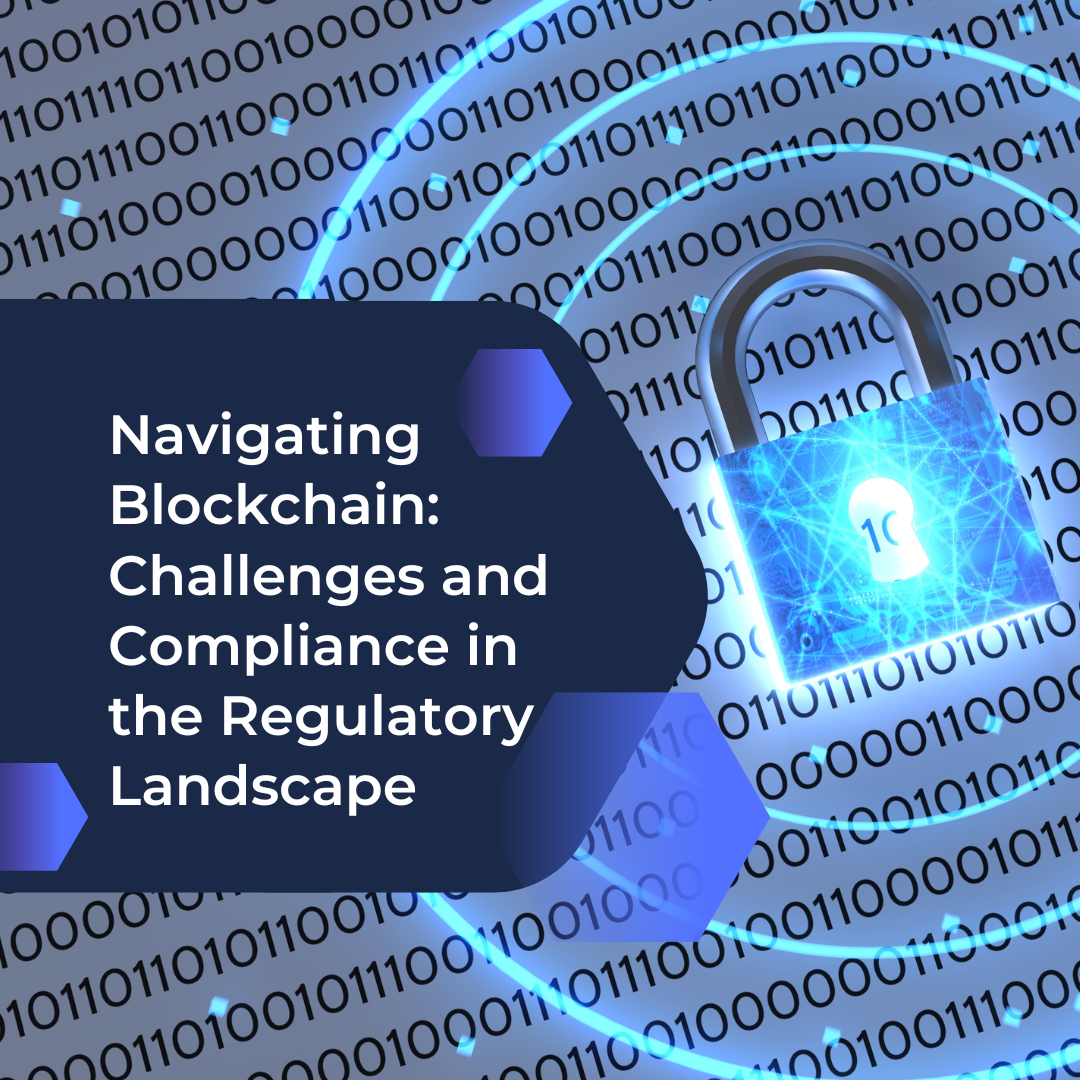Navigating Blockchain: Challenges and Compliance in the Regulatory Landscape

Blockchain technology has emerged as a transformative force across various sectors, offering unprecedented transparency, security, and efficiency.
However, navigating the regulatory landscape poses significant challenges, particularly for projects involving Real-World Assets (RWA).
This article delves into the complexities of compliance in the blockchain space, covering key aspects such as jurisdictional complexity, technology-neutral regulatory regimes, governance, liability, intellectual property, personal data privacy, DAOs, smart contracts, and exit strategies.
Blockchain and Jurisdictional Complexity
Understanding Jurisdictional Complexity
One of the primary challenges in the blockchain space is navigating the varied regulatory environments across different jurisdictions.
Each country has its own set of rules and regulations concerning blockchain technology and cryptocurrencies, making compliance a daunting task for global projects.
Impact on RWA Blockchain
For RWA blockchain projects, jurisdictional complexity means that companies must ensure their operations comply with local laws in every region they operate.
This involves understanding and adhering to securities-related regulations, anti-money laundering (AML) protocols, and know-your-customer (KYC) protocols.
The complexity is further heightened when dealing with multiple jurisdictions with unique legal requirements.
Technology-Neutral Regulatory Regime
What is a Technology-Neutral Regulatory Regime?
A technology-neutral regulatory regime refers to laws and regulations that are designed to apply to all technologies equally, without favouring or discriminating against any particular technology.
This approach ensures that regulations remain relevant despite technological advancements.
Benefits for Layer 1 Blockchain
For layer 1 blockchain projects, a technology-neutral regulatory regime provides a stable and predictable legal environment.
This helps foster innovation and investment, as companies can develop their solutions without the fear of regulatory changes targeting specific technologies.
It also ensures that regulations are fair and equitable, promoting healthy competition in the blockchain space.
Governance and Legal Documentation
Importance of Governance
Effective governance is crucial for the success and compliance of blockchain projects.
Governance structures determine how decisions are made, how disputes are resolved, and how changes are implemented within the blockchain ecosystem.
Role of Legal Documentation
Legal documentation provides a clear framework for governance, outlining the rights and responsibilities of all parties involved.
This includes terms of service, privacy policies, and user agreements.
Proper legal documentation ensures that all participants are aware of the rules and can operate within the legal boundaries, thereby reducing the risk of legal disputes and non-compliance.
Liability Allocation
Understanding Liability Allocation
Liability allocation refers to the process of determining who is responsible for various risks and obligations within a blockchain project.
This is especially important in decentralised systems where multiple parties are involved.
Key Considerations
For regulated blockchain projects, it is essential to clearly define liability in legal agreements. This includes specifying who is responsible for data breaches, transaction errors, and compliance failures.
Transparent liability allocation helps mitigate risks and provides a legal basis for resolving disputes.
Intellectual Property (IP) Concerns
IP in Blockchain
Intellectual property concerns are significant in the blockchain space, given the innovative nature of the technology.
Protecting proprietary technology and ensuring that IP rights are respected is crucial for fostering innovation and maintaining competitive advantage.
Addressing IP Concerns
Blockchain projects must implement robust IP protection strategies, including patents, trademarks, and copyrights.
Additionally, they must ensure that they do not infringe on the IP rights of others. This involves conducting thorough IP audits and implementing compliance programmes to avoid potential legal issues.
Personal Data Privacy
Privacy Challenges
Personal data privacy is a critical concern in the blockchain space. Blockchain’s immutable and transparent nature makes it challenging to comply with data privacy regulations like the General Data Protection Regulation (GDPR).
Ensuring Compliance
To address privacy challenges, blockchain projects must implement measures to protect personal data.
This includes data encryption, anonymisation, and implementing privacy-enhancing technologies.
Additionally, they must establish clear data handling policies and obtain explicit consent from users for data processing activities.
Decentralized Autonomous Organizations (DAOs)
What are DAOs?
Decentralized Autonomous Organizations (DAOs) are entities that operate based on smart contracts and are governed by their members through a consensus mechanism.
DAOs represent a new model of organisational governance that leverages blockchain technology to enable decentralisation.
Regulatory Considerations
DAOs face unique regulatory challenges due to their decentralised nature. Ensuring compliance with corporate governance laws, tax regulations, and securities laws is complex.
To navigate these challenges, DAOs must establish clear governance frameworks and legal structures that comply with applicable regulations.
Smart Contracts
Understanding Smart Contracts
Smart contracts are self-executing contracts with the terms of the agreement directly written into code. They facilitate, verify, and enforce the performance of a contract without the need for intermediaries.
Legal Implications
While smart contracts offer numerous benefits, including automation and efficiency, they also present legal challenges.
Ensuring that smart contracts are legally binding and enforceable requires careful drafting and thorough legal review.
Additionally, mechanisms must be in place to address issues such as contract interpretation and dispute resolution.
Exit Strategies
Importance of Exit Strategies
An exit strategy is a plan for how an investment or project will be liquidated or transferred to another party. In the blockchain space, having a clear exit strategy is crucial for managing risks and ensuring a smooth transition.
Developing Effective Exit Strategies
Effective exit strategies involve planning for various scenarios, including voluntary exits, mergers, and acquisitions.
This includes establishing clear procedures for transferring assets, resolving outstanding obligations, and ensuring compliance with regulatory requirements.
By having a well-defined exit strategy, blockchain projects can mitigate risks and protect the interests of all stakeholders.
Conclusion
Navigating the regulatory landscape for blockchain projects is complex and challenging.
Numerous factors must be considered, including jurisdictional complexities and technology-neutral regulatory regimes, governance, liability allocation, IP concerns, data privacy, DAOs, smart contracts, and exit strategies.
Blockchain projects can achieve long-term success and sustainability by addressing these challenges proactively and implementing robust compliance measures.
How E-Money Network Can Help You with Regulated Blockchain
E-Money Network specialises in providing comprehensive solutions for regulated blockchain projects. With expertise in ensuring compliance with global regulations, including MiCA,
E-Money Network helps projects navigate the complex regulatory landscape, ensuring secure and legally compliant blockchain operations.
FAQs
1. What is the main challenge of RWA blockchain?
The main challenge of RWA blockchain is navigating the varied regulatory environments across different jurisdictions and ensuring compliance with local laws.
2. How does a technology-neutral regulatory regime benefit blockchain projects?
A technology-neutral regulatory regime provides a stable and predictable legal environment, fostering innovation and investment by ensuring that regulations apply equally to all technologies.
3. What are DAOs and why are they significant?
DAOs are Decentralized Autonomous Organizations that operate based on smart contracts and are governed by members through consensus. They represent a new model of organisational governance leveraging blockchain technology.
4. What is the importance of legal documentation in blockchain projects?
Legal documentation provides a clear framework for governance, outlining the rights and responsibilities of all parties involved, ensuring that participants operate within legal boundaries and reducing the risk of legal disputes.
5. How can blockchain projects address personal data privacy concerns?
Blockchain projects can address privacy concerns by implementing data encryption, anonymisation, and privacy-enhancing technologies, and establishing clear data handling policies with explicit user consent.
6. What are the Regulatory Issues with Blockchain?
Blockchain faces several regulatory issues due to its decentralised nature and global reach.
Key challenges include jurisdictional complexity, as blockchain transactions often span multiple countries, each with different regulations.
Data privacy laws like GDPR pose challenges because blockchain’s immutability conflicts with rights such as the “right to be forgotten.” Anti-money laundering (AML) and Know Your Customer (KYC) regulations are hard to implement due to blockchain’s pseudonymous nature.
Additionally, the classification of blockchain tokens as securities varies, complicating compliance for issuers and traders. Smart contracts also raise legal questions about enforceability and jurisdiction.
7. What is Regulatory Compliance in Blockchain?
Regulatory compliance in blockchain involves adhering to legal requirements applicable to blockchain activities, such as financial transactions, data privacy, AML, KYC, and securities laws.
It ensures that blockchain operations are lawful, secure, and ethical, building trust with users and regulators.
Compliance encompasses implementing policies and procedures to meet these legal standards, using tools like smart contracts for automation, and regularly auditing operations to ensure adherence.
8. How Can Blockchain Help with Compliance?
Blockchain can enhance compliance through its immutable and transparent ledger, which provides a tamper-proof record of transactions.
This feature aids in auditing and verifying compliance with regulatory requirements. Smart contracts can automate compliance by enforcing legal rules within the code, reducing human error.
Additionally, blockchain can streamline KYC and AML processes by securely storing and sharing customer data across institutions, ensuring efficient and compliant verification and monitoring.
9. What is the Regulatory Compliance Process?
The regulatory compliance process involves several steps:
- Assessment: Identify applicable regulations based on the jurisdiction and nature of the blockchain project.
- Implementation: Develop and implement policies and procedures to meet these regulations.
- Monitoring: Continuously monitor operations to ensure ongoing compliance.
- Auditing and Reporting: Regularly audit operations and generate reports for regulators.
- Training and Awareness: Educate employees and stakeholders about compliance requirements and procedures to ensure everyone understands their roles and responsibilities.
10. What is the Regulatory Compliance Rule?
Regulatory compliance rules are specific legal requirements that organizations must follow to ensure their operations are lawful and ethical.
These rules vary by jurisdiction and industry and cover areas such as data privacy, financial transactions, AML, KYC, and securities laws.
Compliance rules protect consumers, ensure fair markets, and maintain the integrity of financial systems.
Adhering to these rules helps organizations avoid legal penalties and build trust with stakeholders.









